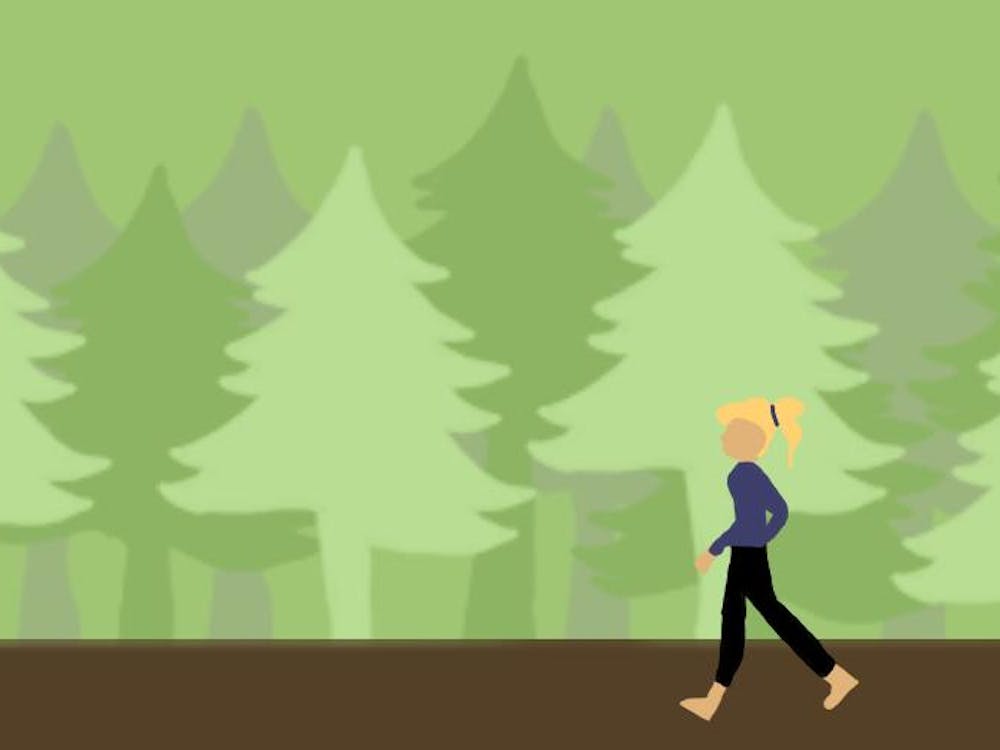A graying professor tucked away in a library of old books, muttering to himself. A stressed graduate student frantically retesting results in a laboratory, anxiously checking the clock each minute.
These are typical images that come to mind when most undergraduate students think of research. But research opportunities are not only for graduate students, and in fact, many undergraduate students at the University are involved in collaborative and independent studies.
Third-year College student Julia King, who has been doing independent research since the spring semester of her first year, said her research experiences have helped shape her undergraduate career.
"I like science and puzzles," she said. "I had a bunch of questions and wanted to answer them. I like knowing how things work. If someone doesn't know how to answer a question that I have, then I want to find the answer."
King, whose neuroscience research focuses on the brain and immune system interactions, said she consults with advisers who guide her in the research process. Nevertheless, some aspects of the process are still tricky.
"The most difficult part is figuring out logistics," she said, noting that making plans and finding funds can be demanding at first.
Even so, King said the experience is worth the time and effort students must put in to get their research projects off the ground.
For some students, conducting research can be a way to decide what career path to follow.
"Research is a way of testing the waters for me," said third-year College student Denise Field, who has been researching for a year. "It helped me to decide what I want to do with my life."
Research allows students to explore their options, Field said, explaining that some decide not to continue with research after trying it.
"A few of my friends have stopped researching and have begun doing other things," she said. "But because of researching, now I know what I want to do after graduating."
Field focuses on drug design and methodology in her organic chemistry research, which includes drugs that can be used for cancer patients. Such investigation has expanded upon lessons learned in her biochemistry courses.
"It broadens what you learn in the classroom," she said. "You get a deeper understanding."
But research can often interfere with normal school work, Field added.
"The hardest part, for me, is realizing that I have classes, too," she said. "I would love to spend more time in the lab, but sometimes I have to put research down instead of continuing."
Mitchell Leibowitz, a third-year College student and editor of The Oculus undergraduate research publication, also stressed the amount of commitment necessary for research.
"Undergraduates usually have to put in about 20 hours a week," he said. "The process can be slow because the many aspects are unexplored. There are many unforeseen issues."
Although there are certainly challenges in balancing external research and an undergraduate course load, King emphasized the benefits of undergraduate research.
"It's rewarding in itself to figure things out, even if you don't complete the whole picture," she said. "The results tend to follow."
King recommended that more undergraduate students take advantage of research opportunities.
"It's important to learn how to think critically and scientifically regardless of your field," she stressed. "It's also a wonderful experience."
Leibowitz, who has been involved in the research community for more than two years, emphasized the importance of undergraduate research at the University.
"There needs to be more undergraduates researching, especially at U.Va," he said. "From my understanding, undergraduate research here is smaller than at a lot of comparable schools. We have so many labs and a lot of people who need undergraduates to help with research projects. Undergraduates are the principle investigators of tomorrow."
Part of the problem may be that many students do not know how easy it is to begin research, Field added.
"A lot of it includes e-mailing a professor and seeing how you can help out," she said. "People should know how to get into it."
After all, Field said, the classroom may offer opportunities to learn and apply theory, but the research lab affords her the chance to find tangible results.
"The final product is the best part," she said. "Being able to explain the process to others who are not in the field is great, and so is making the final compound. I love looking at something and saying, 'I did that."






